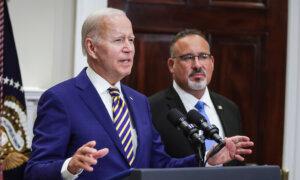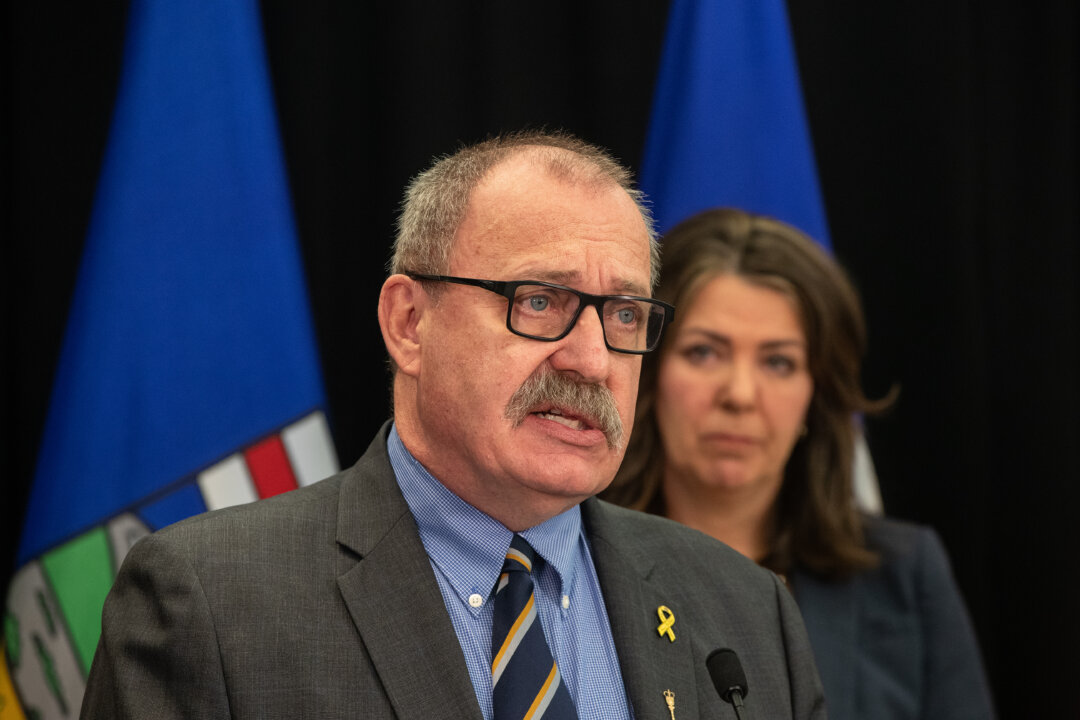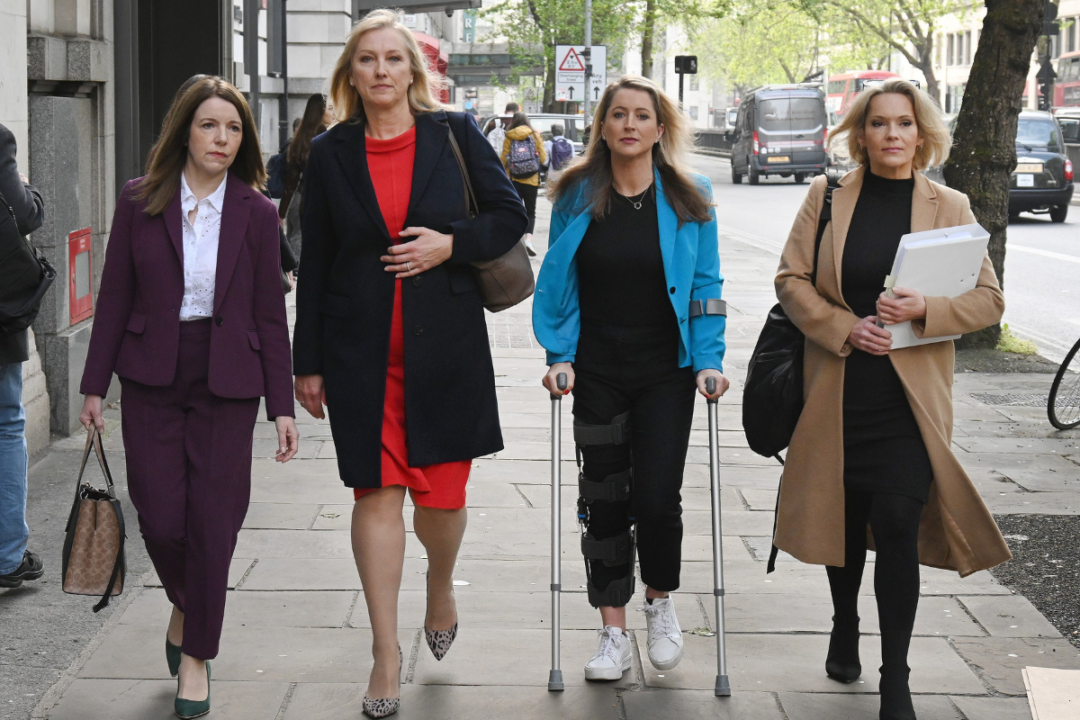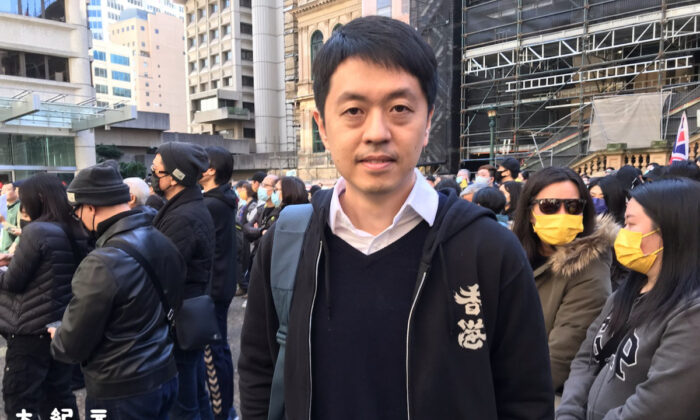President Joe Biden’s administration announced new sanctions on Friday targeting two fundraisers they deemed to be supporting extremist settlers in the West Bank.
The U.S. Treasury Department said the new sanctions specifically target the Mount Hebron Fund and Shlom Asiraich; a pair of fundraising organizations that had facilitated payments for two individuals whom the Biden administration had sanctioned in February for suspected extremist activity: Yinon Levi and David Chai Chasdai.
According to the Treasury Department, Mr. Levi has regularly led groups of violent West Bank settlers, “creating an atmosphere of fear” in the territory.
The department separately accused Mr. Chasdai of initiating a riot in which participants set fire to cars and buildings in the West Bank and assaulted Palestinian civilians there. One Palestinian civilian was reported killed in the riot.
The Treasury Department said the Mount Hebron Fund had financially supported Mr. Levi, while Shlom Asiraich had supported Mr. Chasdai. The fundraisers reportedly generated the equivalent of $140,000 and $31,000, respectively.
“Mount Hebron Fund and Shlom Asiraich generated tens of thousands of dollars for extremists responsible for destroying property, assaulting civilians, and violence against Palestinians,” Deputy Secretary of the Treasury Wally Adeyemo said in a Friday press statement.
Mr. Adeyemo said settler activity continues to undermine peace and security in the West Bank, a disputed territory between Israel and Jordan.
The West Bank has been under varying degrees of Israeli military and civil administration after Israeli forces seized control of the land during the 1967 Six-Day War. Israel has not formally annexed the West Bank but maintains administrative control of sections of the territory.
A United Nations Security Council resolution, adopted unanimously in 1967, calls for the withdrawal of Israeli armed forces from the West Bank. The U.S. government has, for years, referred to the West Bank as an occupied territory subject to the jurisdiction of both the Israeli government and the Palestinian Authority.
The West Bank has been primarily inhabited by Palestinian Arabs, but Israeli citizens began moving into and establishing settlements in areas throughout the occupied territory following the Six-Day War. These settlements have often been a point of contention in the long-running Israeli–Palestinian conflict, with opponents arguing that the settlements increasingly carve into territory claimed by the Palestinian people and undermine efforts at a two-state solution.
The U.N. Security Council adopted a resolution in 2016 declaring these Israeli settlements to be a “flagrant violation” of international law. Fourteen of the 15 U.N. Security Council members supported the 2016 resolution. The United States, which is one of five permanent members on the U.N. Security Council with veto power, abstained from the vote.
Recent West Bank Violence
The West Bank has seen outbursts of violence involving Palestinians and Israeli civilians, as well as Israeli forces over the years.
Israeli military forces conducted a raid on the Jenin Refugee Camp in the West Bank on June 19 to arrest two wanted individuals. The raid devolved into a gun battle. In the end, at least five Palestinians were killed and more than 90 were injured.
The day after the Israeli military raid in Jenin, a pair of Palestinian gunmen killed four Israelis and injured four more near an Israeli settlement of Eli in the West Bank. The day after that, hundreds of Israeli settlers entered the neighboring Palestinian community of Turmus Ayya and set fire to dozens of cars and homes.
U.S. State Department spokesman Matthew Miller said there had already been high levels of violence throughout the West Bank even before the events of Oct. 7, when gunmen of the Palestinian Hamas terrorist group, which controls the Gaza Strip, entered southern Israel and killed more than 1,200 civilians and Israeli security forces, and kidnapped hundreds more.
Israeli officials pressed forward efforts to approve and begin development on new West Bank settlements in February in response to an attack in which a trio of gunmen opened fire on motorists in the Israeli settlement community of Ma’ale Adimum on Thursday, killing one and injuring eight others. The Biden administration responded that the new settlements would prove “counterproductive” to broader peace efforts in the region.
The Israeli publication Haaretz reported new clashes between Israeli settlers and Palestinians near the West Bank city of Ramallah on April 5.
Violence has continued to simmer near Ramallah in recent days, amid the disappearance of 14-year-old Israeli settler Binyamin Achimair. The teenager’s body was found on April 13, with Israeli authorities declaring his death to be the result of a terrorist killing.
Israeli settlers entered Palestinian communities and clashed with the residents after the Israeli teen went missing.
According to Palestinian health officials, 26-year-old Palestinian Jehad Abu Alia was killed on April 12 in a settler attack on the Palestinian village of al-Mughayyir, while more than two dozen others were wounded. Palestinian authorities said Israeli settlers returned the next day to torch around a dozen homes and several cars before border police fired tear gas to disperse the rioters.
Kos Temenes contributed to this article.














 English (US) ·
English (US) ·  Turkish (TR) ·
Turkish (TR) ·